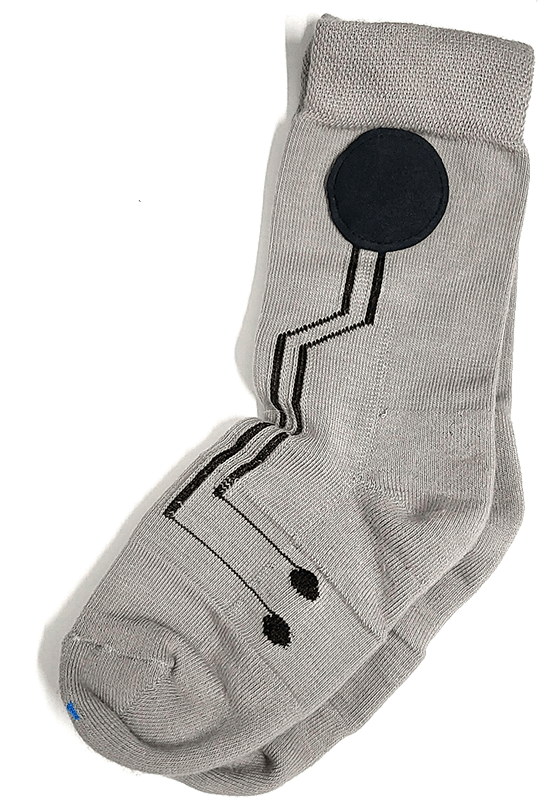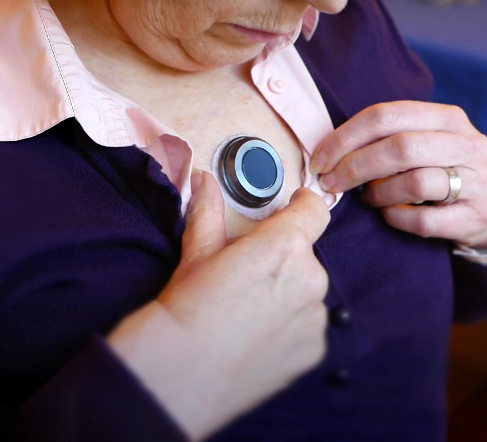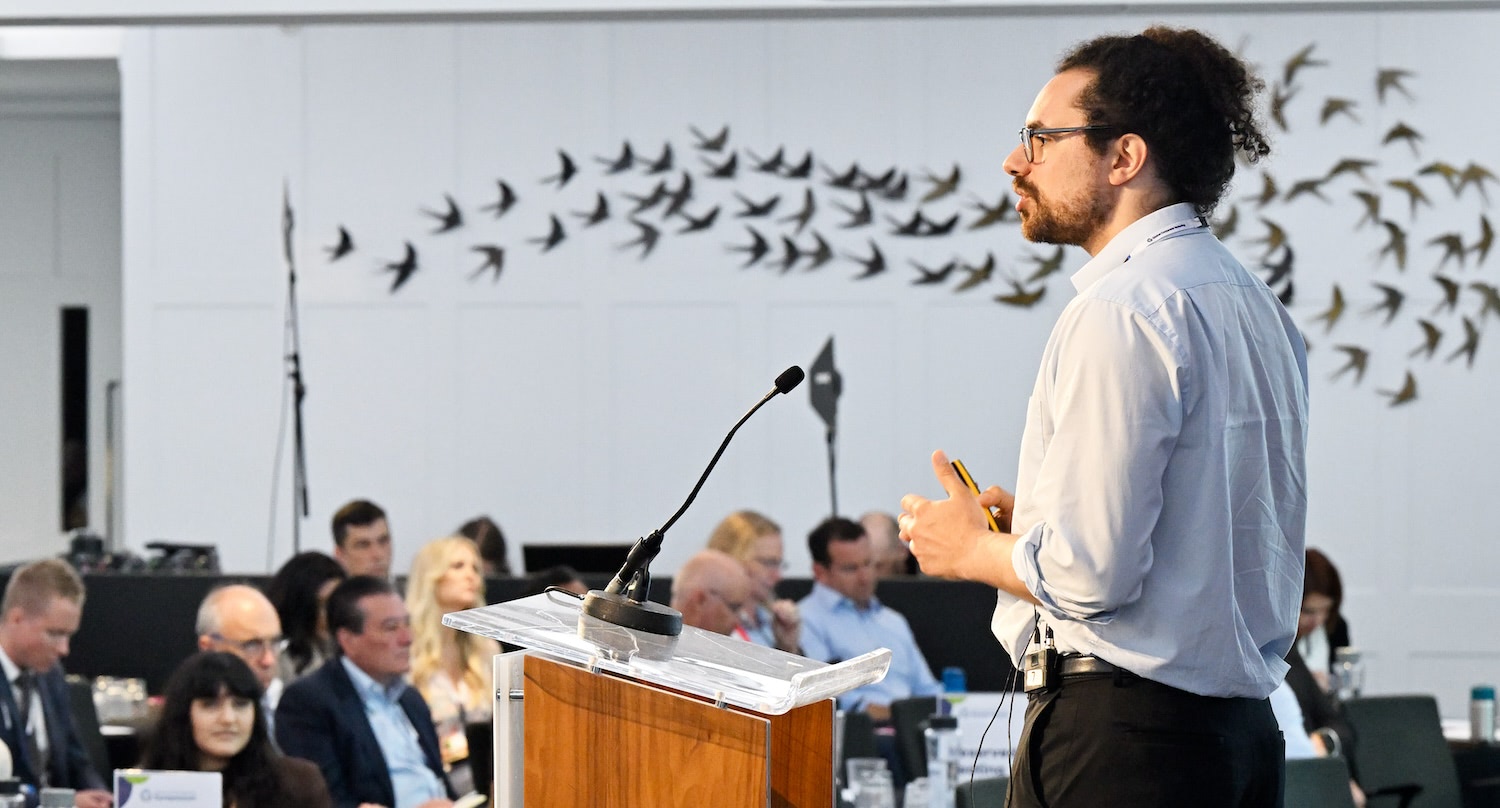From a chest-worn device to help with Parkinson's symptoms to stress measuring socks — here are the spinouts providing support for senior citizens.

Photo courtesy of FreePik
Neurodegenerative diseases without a cure, underfunded research and massive labour shortages have created a senior care crisis. Take dementia, which has been the leading cause of death in the UK for the last ten years, according to Alzheimer’s Society. Some 70% of people in care homes live with severe memory problems and aside from the human toll, the costs have reached around $21.4bn a year.

Healthcare systems are struggling to cope. “There are around 165,000 job vacancies in the care sector at the moment,” says Lis Boulton, chairwoman of the board of Age UK. “People are not receiving the support that they need due to a shortage of staff.”
“Getting any innovation into a sector just trying to survive is challenging,” she argues. “The root of it all is that social care is not properly funded or supported, and the two main political parties in the UK are not talking about it enough at the moment.“
University research, however, is creating some solutions that could help — not just with potential treatments for age-related conditions like dementia — but with technology to help with the daily challenges of care for older patients.
Some of these have been turned into spinout companies that are now looking to commercialise the products. We took a look at some of the latest to emerge.
Socks for stress management
Milbotix, spun out from the University of Bristol, produces a line of wearable socks that contain sensors to detect early signs of distress in a patient. AI software analyses the data and alerts carers to intervene before serious behavioural problems emerge.

Annie Brooking, chief commercial officer at Milbotix, explains: “Our SmartSocks have about five different sensors in them which measure body temperature, sweat and the way that patients are moving. As a result of taking half a dozen readings, they determine the level of stress that person has.”
She adds: “We want to look at stress management because dementia patients find it difficult to communicate which can cause them to get aggressive or in severe cases need 24/7 monitoring so they don’t hurt themselves or others — so this technology can help before things get serious.“
Zeke Steer, founder of Milbotix, says that his experience caring for his grandmother and working in care homes motivated him to launch the company: “Professional carers and family carers have few options for resolving episodes of agitation. But if the carer can support the person early before behaviour escalates, then a lighter touch, more person-centred intervention becomes possible.“
Wearables for Parkinson’s symptoms

Parkinson’s disease — which typically starts with declining motor functions and symptoms like reduced bladder control but eventually also impacts cognitive function — is another health issue. The Parkinson’s Foundation estimates that nearly one million people in the US are living with the disease and the number is expected to rise to 1.2m by 2030.
Most patients are supported by a specialist movement disorder team, but even specialists can only offer so much help in managing chronic symptoms. Some patients are prescribed Levodopa, a dopamine replacement drug, but this can come with serious side effects such as hallucinations, hypotension and increased anxiety and depression.
Imperial College London spinout Charco Neurotech believes its technology can help replace pharmaceutical treatments. Its wearable device, CUE1, is worn on the chest and emits low-voltage impulses on demand, sending signals to the nervous system that reduce slowness, stiffness and problems with balance.

Lucy Jung, founder and chief executive of Charco Neurotech says: “With one press of a button, our CUE1 product provides stimulation to Parkinson’s patients, medication alerts and, through the application, we can look into qualitative and quantitative measures of Parkinson’s symptoms for individuals.“
Jung’s own experience of being in hospital for a brain tumour inspired her to launch Charco Neurotech. “Parkinson’s was one of the topics that I got very interested in just because of the quality of life impact that it has for individuals and family members,” she says.
Charco’s peers include GaitQ, a spinout of the University of Oxford that has developed wearables to help Parkinson’s patients maintain a more fluid and stable gait.
Jung attributes the rise in Parkinson’s and age-related startups to an ageing society and the impact of Covid-19 on healthcare. “Even though there are market difficulties in investing, I think things are more promising compared to ten years ago,” she says. “The increase in elderly conditions in Alzheimer’s and Parkinson’s has led to more investors and entrepreneurs wanting to find solutions to this problem.”
Advancing care through AI

More general senior care is also a challenge. A report by social care charity The Kings Fund found that only 14% of respondents were satisfied with their care or their family members’ care. Factors such as lack of training, low pay and labour gaps are all contributing to people feeling neglected and lonely, and suffering worsening health conditions.
Helicon Health, spun out from University College London, uses artificial intelligence software that accesses electronic health records and offers clinical guidance. It also offers two versions of an online course around anticoagulation management and stroke prevention, one for practitioners and one for patients.
It’s not just university spinouts that have spotted a market gap. Israel-based Intuition Robotics has developed ElliQ, a digital companion to provide emotional support and engagement. The startup’s investors include Toyota Ventures, a corporate venture capital vehicle for automotive producer Toyota.
Dor Skuler, chief executive and co-founder of Intuition Robotics says ElliQ can emulate body language to offer a genuine connection for senior citizens. “Loneliness is the largest public health crisis in recent years contributing to more deaths and even diabetes. I felt like someone had to do something — and technology has an important role to play in this,” he says.
University support can be crucial…

Zeke Steer says that university support has been integral to Milbotix’s success — the SmartSocks technology was developed at the Bristol Robotics Laboratory, a partnership between the University of Bristol and the University of the West of England. The spinout has since benefitted from other programmes offered by the two institutions, such as SETsquared and Future Space.
Lucy Jung similarly points to Imperial College London’s support, which helped her find a business mentor who introduced the company to grant schemes and even invested through one of their own funds.
And Helicon Health chief executive Tony Bowden adds: “Founders are always in need of specialist advice and guidance. Universities typically have quite a high deal flow with innovations coming through through their system. So sharing that knowledge with founders can help them understand what makes investors tick.”
… but not everyone is convinced universities do it well
Universities do have to be careful, however, not to take too large a stake in their spinouts cautions Milbotix’s Annie Brooking, as this can make the companies “almost uninvestable”. She notes that Bristol is not one of those that take large holdings.
Age UK’s Lis Boulton says spinouts can be hampered by not expanding their partnerships and research into local care communities. Spinouts like the University of Manchester’s Red Ninja have done well in building local relationships, but not all follow this model.
“You get local relationships between universities and local care sectors, particularly if they’ve got funding for research,” Boulton adds. “If you got more involvement from local integrated care boards, local integrated care systems when developing technological solutions, then you’re going to get more of a reach across the whole local system area.”
Being active in these healthcare spaces for older people will ensure that high-quality spinouts with effective products will hit the market. Boulton argues it’s important to design technology together with the users and to make sure a product is ready before testing it. “If you have enough time to iron out any glitches before you try it out on older people, then it will be advantageous for the company,” she concludes.








